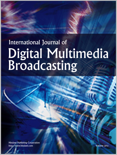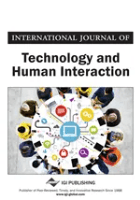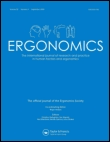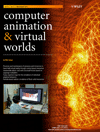
Journal on Multimodal User Interfaces
metrics 2024
Exploring the Future of Interaction Technologies
Introduction
Journal on Multimodal User Interfaces, published by Springer, serves as a vital platform for scholarly exchange in the rapidly evolving fields of Human-Computer Interaction and Signal Processing. Established in 2008 and continuing through 2024, this journal maintains a high profile in academia, currently ranking in the Q2 category for both fields, indicating its significant contribution to ongoing research and practical applications. With its Scopus rankings placing it at #34 in Signal Processing and #49 in Human-Computer Interaction, it is recognized for publishing high-quality, impactful research. Although it is not an Open Access journal, the Journal on Multimodal User Interfaces remains accessible through institutional subscriptions. Researchers, professionals, and students will find the journal an essential resource for advancing knowledge and fostering collaboration in multimodal interaction technologies, which are crucial for enhancing user experience and developing intelligent systems.
Metrics 2024
 0.68
0.68 2.20
2.20 2.50
2.50 33
33Metrics History
Rank 2024
Scopus
IF (Web Of Science)
JCI (Web Of Science)
Quartile History
Similar Journals

International Journal of Digital Multimedia Broadcasting
Advancing the Future of Multimedia BroadcastingThe International Journal of Digital Multimedia Broadcasting is a leading scholarly platform dedicated to the interdisciplinary exploration of digital multimedia broadcasting, published by HINDAWI LTD. With an ISSN of 1687-7578 and an E-ISSN of 1687-7586, this Open Access journal has made significant strides since its inception in 2008, ensuring wide accessibility and dissemination of research. Based in the United States, at Adam House, 3rd Flr, 1 Fitzroy Sq, London W1T 5HF, England, the journal covers a range of topics relevant to Communication, Electrical and Electronic Engineering, and Media Technology, boasting impressive Scopus rankings that highlight its influence in these fields. As part of the Q3 category in Communication and Electrical Engineering, and Q2 in Media Technology for 2023, the journal serves a vital role in fostering the understanding of technological advancements and their applications in multimedia broadcasting. Researchers, professionals, and students are encouraged to contribute to and benefit from the journal's rich repository of knowledge, paving the way for innovative developments in this dynamic industry.

Journal of Usability Studies
Fostering deep understanding of user-system interactions.The Journal of Usability Studies, published by the USERS EXPERIENCE PROFESSIONAL ASSOCIATION, is a pivotal platform for researchers and professionals dedicated to advancing the field of usability and user experience design. With an ISSN of 1931-3357, this journal offers a collection of peer-reviewed articles that explore innovative methodologies, emerging technologies, and applied research in usability studies. Though it operates under a traditional access model, the journal remains dedicated to fostering a detailed understanding of how users interact with systems and products. The Journal of Usability Studies is instrumental for those aiming to enhance user satisfaction through research-backed insights, making it a vital resource for academics, practitioners, and students seeking to contribute to the evolving discourse in human-computer interaction and usability engineering.

Multimodal Technologies and Interaction
Enhancing Interaction Through Innovative Research.Multimodal Technologies and Interaction, published by MDPI since 2017, is an esteemed open-access journal based in Switzerland, dedicated to the exploration and advancement of innovative multimodal systems that enhance user experience across various digital platforms. With its commitment to disseminating high-quality research in diverse areas such as Computer Networks and Communications, Human-Computer Interaction, and Neuroscience, the journal has rapidly established itself within the academic community, achieving a commendable position in Scopus rankings including Q2 in both Computer Networks and Communications and Computer Science Applications. As an essential resource for researchers, professionals, and students alike, Multimodal Technologies and Interaction fosters interdisciplinary dialogue and supports the development of cutting-edge technologies, ensuring that advancements in multimodal interaction are accessible to a global audience. Scholars can benefit from its Open Access format, allowing unrestricted access to influential studies that shape the future of technology and interaction design.

International Journal of Technology and Human Interaction
Bridging the Gap Between Technology and Human BehaviorInternational Journal of Technology and Human Interaction, published by IGI Global, serves as a critical platform for the exploration of the intersection between technology and human behavior, offering an interdisciplinary lens on topics within the realms of Human-Computer Interaction and Information Systems. With an ISSN of 1548-3908 and an E-ISSN of 1548-3916, this journal has been contributing to scholarly discourse since its inception in 2005, with ongoing publication until 2024. Hosting a diverse range of research articles, case studies, and reviews, the journal aims to advance the understanding of how technology influences human experience and interaction patterns in various contexts. Although currently positioned in the Q4 quartile of both Human-Computer Interaction and Information Systems categories, the journal fosters knowledge that aspires to redefine scope and standards within the field. Its commitment to quality research is reflected in its Scopus rankings, showcasing its relevance despite its emerging status in academia. Targeting researchers, professionals, and students alike, the International Journal of Technology and Human Interaction invites contributions that address the pressing challenges and innovations at the nexus of technology and human interaction.

ERGONOMICS
Bridging the gap between people and their environments.ERGONOMICS is a premier journal that serves the dynamic fields of Human Factors and Ergonomics, as well as Physical Therapy, Sports Therapy, and Rehabilitation. Published by Taylor & Francis Ltd in the United Kingdom, this journal not only boasts a commendable impact factor but also holds a Q2 quartile ranking across its categories, underscoring its influence and academic rigor. With a convergence of significant research dating back to 1957, ERGONOMICS provides a multifaceted platform for the dissemination and discussion of innovative findings that enhance the interaction between people and their environments. Although the journal does not offer Open Access options, it remains a vital resource for researchers, professionals, and students seeking to deepen their understanding of ergonomic principles and applications. Positioned at the intersection of health and human behavior, ERGONOMICS is dedicated to advancing knowledge and promoting best practices in an era where the demand for safe and efficient work environments continues to grow.

CCF Transactions on Pervasive Computing and Interaction
Driving Research at the Intersection of AI and ComputingCCF Transactions on Pervasive Computing and Interaction, published by SPRINGERNATURE, is a leading academic journal dedicated to advancing the field of pervasive computing and interaction. With an ISSN of 2524-521X and E-ISSN 2524-5228, this journal is well-regarded for its rigorous peer-reviewed research, featuring influential studies that explore the intersection of Artificial Intelligence, Computer Networks and Communications, Computer Science Applications, and Human-Computer Interaction. Recognized in the 2023 journal rankings, it holds a prestigious Q2 quartile classification across these domains, reflecting its impact and relevance in the academic community. Researchers and practitioners can greatly benefit from its contributions, showcasing innovative approaches and technologies that shape the future of interactive computing. Although currently not following an open-access model, the journal underscores its commitment to high-quality research dissemination, making it a vital resource for those interested in the evolving landscape of pervasive technologies and user-centric designs. For more information on submissions and access options, please refer to the official website.

International Journal of Affective Engineering
Pioneering research at the heart of affective engineering.Welcome to the International Journal of Affective Engineering, an esteemed publication dedicated to advancing the interdisciplinary fields of affective engineering and human-centered design. Published by the Japan Society of Kansei Engineering, this journal aims to foster innovative research that bridges emotional perception with engineering practices, ultimately enhancing user experiences across various applications. As a peer-reviewed platform, the journal plays a pivotal role in disseminating groundbreaking studies and methodologies, positioning itself as a valuable resource within the academic landscape. The journal is designed for a diverse audience, including researchers, industry professionals, and students committed to exploring the emotional dimensions of technology. Although it currently operates under a subscription model, the journal remains open to new research contributions that emphasize the significance of affective design in technology development. With its focus on quality research, the International Journal of Affective Engineering is poised to make a substantial impact in the evolving field of affective sciences.

COMPUTER ANIMATION AND VIRTUAL WORLDS
Pioneering Research in Virtual Worlds and Computer Graphics.COMPUTER ANIMATION AND VIRTUAL WORLDS, published by Wiley, is a pivotal journal in the fields of Computer Graphics and Computer-Aided Design, as well as Software. With a focus on the intersection of technology and creativity, the journal provides a platform for researchers and professionals to share innovative studies, new methodologies, and insights that shape the future of computer animation and virtual environments. Currently holding a Q2 category in Computer Graphics and a Q3 in Software for 2023, it ranks #63 out of 106 in its niche, highlighting its influence and relevance in the academic community. Though the journal operates under a subscription model, it also offers options for open access, ensuring that a broader audience can engage with groundbreaking research. The journal has been publishing continuously since its inception in 2004 and looks forward to further contributions as it moves towards its 20th anniversary in 2024. Whether you are a seasoned researcher, an industry professional, or a student eager to explore these dynamic fields, COMPUTER ANIMATION AND VIRTUAL WORLDS is an essential resource for advancing knowledge and innovation.

Journal of Organizational and End User Computing
Exploring the Nexus of User Experience and Organizational DynamicsThe Journal of Organizational and End User Computing, published by IGI Global, is a leading peer-reviewed outlet dedicated to exploring the intersection of organizational practices and user interfaces within the digital realm. With a robust ISSN of 1546-2234 and an E-ISSN of 1546-5012, the journal has established itself as a crucial resource for scholars and practitioners in the fields of Computer Science Applications, Human-Computer Interaction, and Strategy and Management. Recognized for its quality, the journal attained Q3 status in Computer Science Applications and Human-Computer Interaction, and Q2 status in Strategy and Management in 2023, reflecting its esteemed position in academic rankings. Operating from the heart of the United States, the journal has converged its focus from 2004 to 2024, making it a reliable source for cutting-edge research and industry trends. Although it does not offer open access, the Journal of Organizational and End User Computing remains an invaluable repository of knowledge, perfect for researchers, professionals, and students seeking to advance their understanding of organizational structures and user engagement in computing environments.

VIRTUAL REALITY
Shaping Tomorrow's Virtual Experiences TodayVIRTUAL REALITY is a prestigious journal published by SPRINGER LONDON LTD that has been at the forefront of the field since its inception in 1995. This journal, with an ISSN of 1359-4338 and E-ISSN 1434-9957, serves as an indispensable resource for researchers, professionals, and students interested in the rapidly evolving domains of computer graphics, human-computer interaction, and software development. VIRTUAL REALITY holds an impressive Q1 ranking across relevant categories, reflecting its high impact within the academic community, with specific rankings such as 11th overall in Computer Graphics and Computer-Aided Design and 31st in Human-Computer Interaction. This journal aims to publish cutting-edge research that explores theoretical advancements and practical applications related to virtual environments, contributing significantly to knowledge and innovation. With access options available through institutional subscriptions, it continues to shape the landscape of its field and inspire future research in immersive technologies.